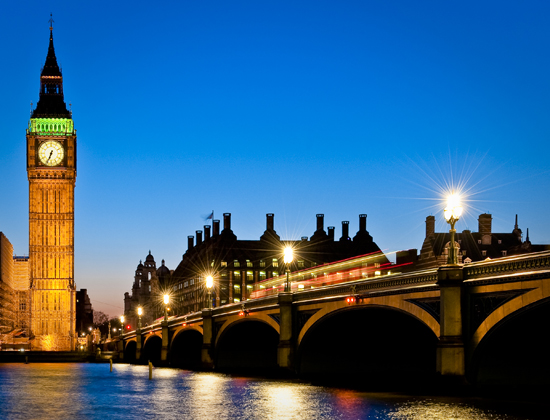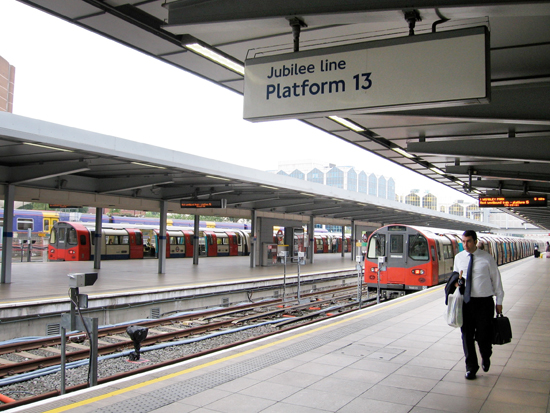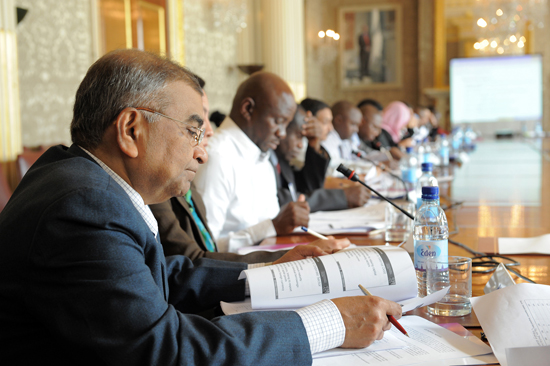Culture and Society: Time Orientation
Perception of Time
Traditional British society conceives of time as a sequence of events—a line with a beginning in the ancient past and progressing toward some point in the future. The British are traditionally oriented toward the past, valuing tradition and precedence over innovation and risk, and toward the present in their concern with keeping up appearances. The adage, “Time is money,” is generally important in British society, although this can be found to vary from region to region.
The United Kingdom (UK) is dominated by the Church of England, which supports the idea of an eternal afterlife. The diversity of modern British society, however, includes beliefs in varying types of afterlives, or none at all.
Traditional Calendar
Although most of the UK follows the Church of England, the British use the solar-based Gregorian calendar, which was introduced by Pope Gregory XIII in 1582 to better accommodate the timing of Roman Catholic holidays. This calendar centers around the nativity of Jesus Christ, using a system in which each successive year before and after this event is numbered in ascending order. The years prior to the nativity are followed by B.C. (Before Christ), and those after the nativity by AD (for Anno Domini, meaning "In the year of our Lord"). This wording is often altered to BCE (Before Current Era) and CE (Current Era) in the modern age to incorporate people of other religious persuasions, which is important in the vastly diverse modern British society. Both continuums begin with the number one; there is no year zero.
In Britain, the calendar year is propelled by the Christian liturgical calendar as well as by national and bank holidays. Bank holidays may be either religious or secular, and vary from country to country within the UK. Each country celebrates its own national day, which is the day of its respective patron saint, in accordance with the Roman Catholic tradition which has carried over into Anglican society.
Attitude Toward Time
In general, the British appreciate and strive for punctuality, but a dichotomy exists between their innate desire for being on time and the aging and antiquated infrastructures, such as public transportation and the postal service, which provide the means for punctuality. These institutions, having been established in the 19th and 17th centuries respectively, are notorious for regularly thwarting citizens’ attempts to be on time, and this tardiness has trickled down into society to the degree that promptness, while sought after, is not as imperative as in other parts of Western Europe. Punctuality also varies much from region to region throughout the UK, with some areas placing much more importance on it than others.
The British are primarily a monochronic society, completing tasks one at a time and setting aside time for separate activities. The British dislike interruptions and value time management, orderliness, and a sense of everything being in its place. Free time is valued, although the British have fewer holidays than most other European countries.
Social Engagements
It is polite to arrive punctually for social engagements in Britain, but a some flexibility is permitted. Arriving a few minutes late is generally not considered rude. People generally arrive on time for meal appointments in a restaurant, but for meals in someone’s home, the host will usually expect guests to arrive between 5 and 15 minutes after the stated time. (Arriving too early is viewed as an invasion of the host’s personal time and is not practiced.) Arriving up to 15 minutes late to a party is acceptable, and not considered rude.
Business Engagements
Punctuality is much more strictly adhered to when it comes to business engagements. The British like to start meetings on time so that they can accomplish their goals without interfering with other responsibilities. Those who arrive late are perceived as lacking respect for their business counterparts. If lateness is unavoidable, it is expected that the person will call ahead with an explanation and apology, followed by another concise apology upon arrival.
The British usually chat briefly about the weather or other innocuous subjects as people gather, but it's expected that everyone will get down to business rather promptly. A methodical society, the British prefer to schedule meetings several weeks in advance and value slow and systematic means of reaching decisions. Managers prefer everyone to agree to a plan of action, and this may involve some lengthy discussion before reaching a mutual decision.
British companies meet and expect deadlines to be met, but do not appreciate being rushed, as this shows a lack of respect for their systematic methods.
Article written for World Trade Press by Heather Thielen.
Copyright © 1993—2024 World Trade Press. All rights reserved.

 United Kingdom
United Kingdom 

